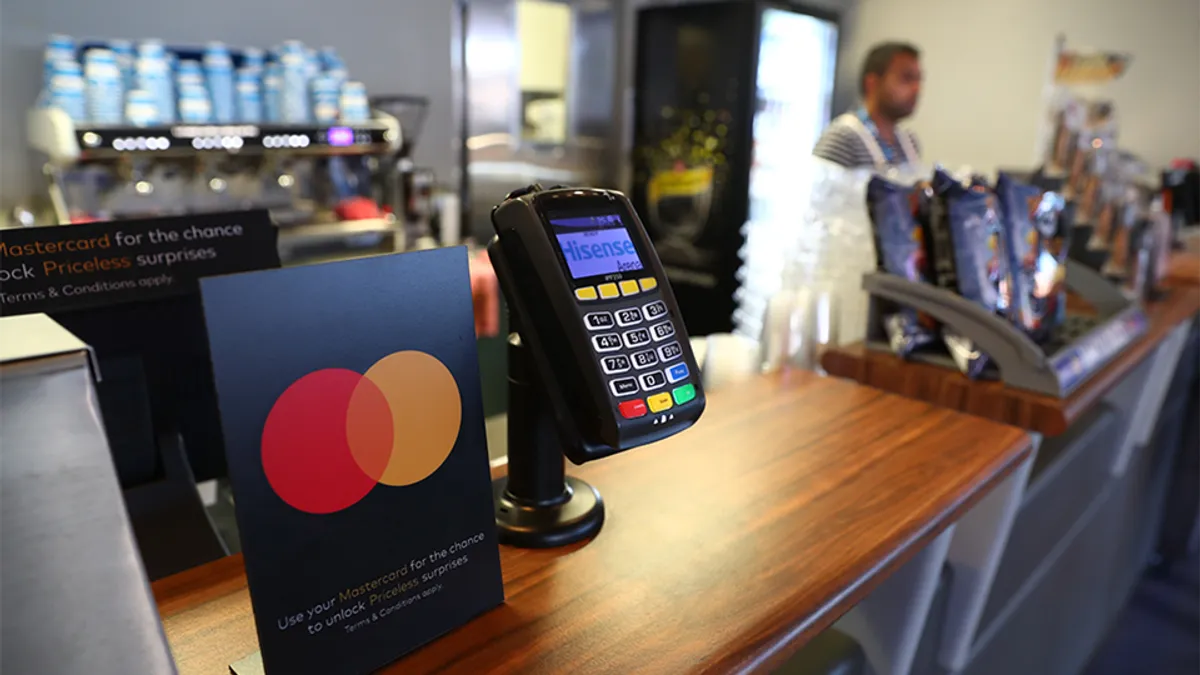Dive Brief:
- The U.S. Public Interest Research Group called out card network company Mastercard over its data-selling practices in a report late last month.
- Mastercard, the No. 2 U.S. card network, sells cardholders’ transaction data through third-party data marketplaces online as well as through the company’s own data and services division, the consumer advocacy organization asserted in a Sept. 20 report.
- Mastercard disputes PIRG’s allegations. “Mastercard does not sell personal cardholder data for marketing, location tracking or targeted advertising,” Spokesperson Seth Eisen said in a statement emailed to Payments Dive. R.J. Cross, the PIRG report’s author, said the company “is using confusing language to muddy the point that we’re making, and that’s unfortunate.”
Dive Insight:
Selling consumer data has become a lucrative business, and the personal data market involves advertisers, tech companies, hedge funds and data brokers, PIRG said. Purchase, New York-based Mastercard “is far from the only company engaged in data sales, nor is it necessarily the worst actor,” PIRG acknowledged in the report.
“But in its position as a global payments technology company, Mastercard has access to enormous amounts of information derived from the financial lives of millions, and its monetization strategies tell a broader story of the data economy that’s gone too far,” the report noted.
Those strategies include selling aggregated and anonymized bundles of cardholder transaction data to third parties online, and through Mastercard’s in-house data and services unit, which advertises access to the card network’s databases of billions of purchase transactions through its 25 data services products, PIRG noted.
One example, called Intelligent Targeting, allows companies to access “Mastercard 360° data insights” to craft targeted advertising designed to reach “high-value” customers, according to the company’s website.
“In the last decade, Mastercard has increasingly capitalized on the transaction data it has access to in the course of being a payment network,” including where people spend, how much they’re spending and when, PIRG said in the report. PIRG called on Mastercard to commit to a policy of limited data use, urging the company to collect and use only data needed for cardholder services.
Eisen maintained that Mastercard’s privacy and data responsibility principles guide the company’s data practices globally. “The promise made to consumers is straightforward - when it comes to your data, you own it, you control it, you should benefit from the use of it, we protect it,” he said in the statement.
Consumer Financial Protection Bureau Director Rohit Chopra said in August the federal agency aims to crack down on data brokers that sell sensitive information. The bureau is proposing new rules to ensure data companies are meeting the Fair Credit Reporting Act’s requirements.
“The collection and sale of people’s data is almost entirely unregulated, and virtually every major company has begun monetizing customer data in ways people are not expecting,” the PIRG report said.











